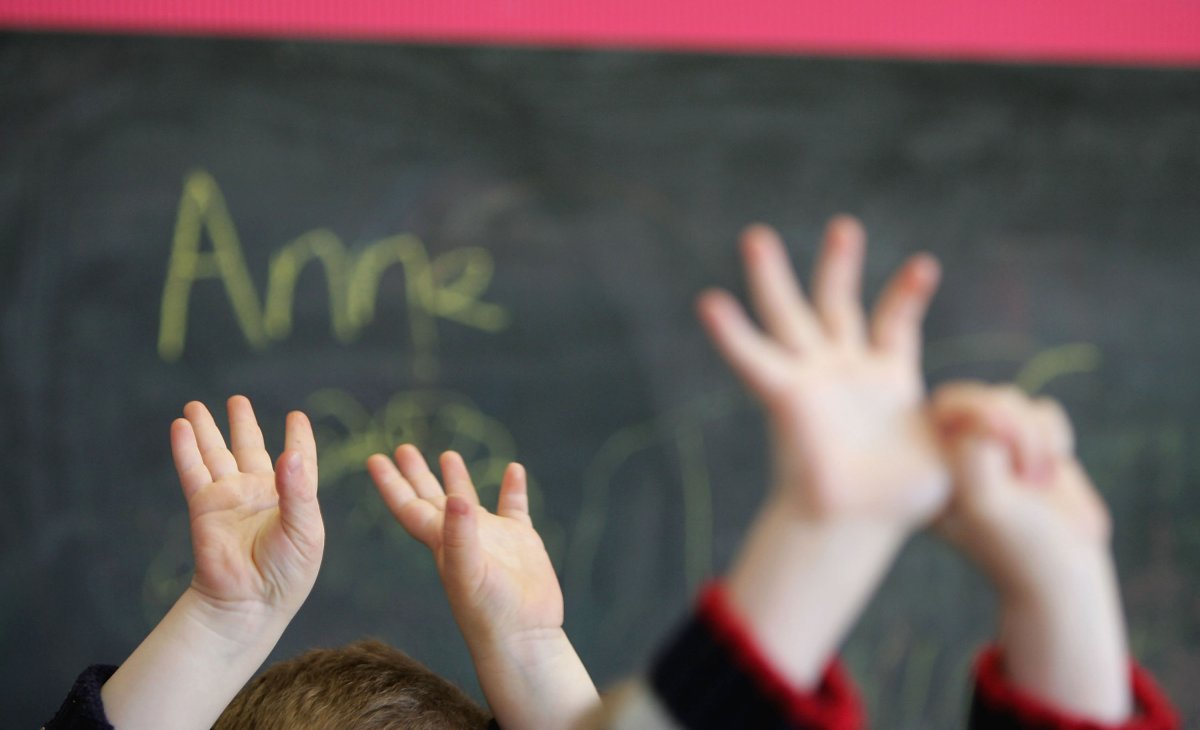TORONTO – Serena Datta is seven years old. Since kindergarten, the Grade 2 student devotes two nights of her week to Kumon, an after-school learning program where she practices English and math exercises.

Serena’s parents emigrated from India in 2009. They earmark $200 a month to her tutoring classes and to them it’s a worthwhile investment. They want to push the young girl’s academic potential.
“I wanted my child to explore new things. It’s been an extra help for her because she knows she’s more confident, she knows what to do in her class,” Serena’s mom Rajasree told Global News.
Private tutoring becoming a booming industry
In recent years, private tutoring has taken off in most parts of urban Canada along with the rest of the world. As young professionals take on graduate studies and established adults head back to school to update their skills, parents are also feeling the weight of a competitive economy.
Read more: 60 per cent more Toronto students have private tutors – in wealthy areas most of all
This may be why they’re signing their kids up for tutoring to help them get ahead, and private tutoring businesses are responding to the demand.
Just ask Dr. Julian Dierkes.
“In a place like Vancouver, if we walk through town, I don’t think we could walk further than about 10 minutes without coming across (a private tutoring business) and this wouldn’t be the case, say, 10 years ago,” he told Global News.
Read more: On moving on: Are Canadian parents celebrating or mourning when kids move out for school?
Dierkes is a University of British Columbia professor studying education, specifically learning outside of the school. While education faculties look into institutionalized education and adult learning, the growing branch of education via private tutoring seems to fall between the cracks.

Get weekly health news
But does private tutoring help?
There’s very little, if any, research on the benefits or pitfalls of tutoring, Dierkes said. There’s been massive growth worldwide – literally a billion-dollar industry – in private tutoring business, but he’s skeptical and can’t say if it even helps kids.
“It all seems intuitively very plausible – adding additional hours of instruction every week, students are going to get something out of that, but we don’t really know. There’s no evidence so far that it does improve learning,” Dierkes told Global News.
Read more: Young Minds: Stress, anxiety plaguing Canadian youth
Quantifying the success of tutoring would be difficult; a study would have to randomly assign kids to tutoring or not, then compare their grades at the start of the school year and at the end. Dierkes is sure parents would object to an experiment that meddles with their kids’ education.
It’s also hard to control the quality of teaching or whether tutors even bring any credentials to the table, Dierkes said.
Tutoring as enrichment, not intervention
Tutoring has shed its stigma – it was once seen as necessary for kids who need intervention, some extra assistance to keep up with peers. Now, it’s taken on some sort of status, a supplement not all families can afford.
Dierkes wonders whether it could it split the classroom into two tiers, or whether rural communities in Canada would get the same access to tutoring as other regions.
Read more: 5 tips for packing healthy, kid-friendly back to school lunches
But Kumon instructor Ana Cruceru says the program, which originated in Japan, works.
Instructors help kids develop “self-learning” skills by walking them through worksheets and exercises at their own pace. Kumon students head to the centre twice a week but they complete another 30 minutes of worksheets each night.
One student, not even three years old when she began Kumon, took on learning how to count. Worksheets walk the student through counting balloons or lollipops. First, she masters identifying numbers, counting and ordering them before she’s introduced to adding and subtracting.
Read more: Dad’s controversial advice for daughter’s sex life mirrors parenting in Canada, experts say
“It’s a long-term study program, it’s not tutoring per se. So when parents and students sign up, it’s for the long run,” Cruceru said. Most students stay between two and five years with the centre.
Some remedial students could be in grade 5 with a grade 1-level education. After a few years with the centre, they could be two to three years above their grade level, Cruceru said.
Private tutoring sales steadily climbing
Canada’s tutoring industry doesn’t match the heavyweights of Korea or Japan but it’s quickly growing.
Kumon, for example, has some 330 centres across Canada. It isn’t private tutoring, but enrolls students from as young as preschool through high school in math and reading.
From 2009 to 2012, the company says it’s seen a 28 per cent increase overall. Sixty-seven per cent of its students are in Grades 1 to 5, with most coming from Grades 3 and 4. Another 13 per cent of students are pre-school aged.
Read more: Young Minds: Millennials facing increased rates of stress compared to other generations
Oxford Learning, another national player, says it’s seen steady growth since it began franchising in 1991. Hourly rates range from $45 to $55 for personal tutoring.
Dierkes says that if he visited a classroom in Japan or even Vancouver, between half and one-third of the class would have some form of supplementary education.
Even then, the countries that rank high in education – say, Finland – don’t have thriving for-profit tutoring industries like Japan or Korea that don’t fare as high.
Dierkes says parents should practice caution when considering private tutoring for their kids.
carmen.chai@globalnews.ca
Follow @Carmen_Chai







Comments